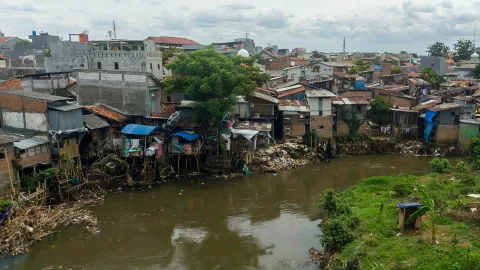Share the page

Reducing inequality is one of the seventeen sustainable development goals of the United Nations (SDG 10). Indonesia, with its cultural and geographical diversity, faces complex challenges in achieving equality and inclusivity.
In efforts to address the lingering inequality issues in the country, the Institute for Economic and Social Research, Faculty of Economics and Business, University of Indonesia (LPEM FEB UI), has edited the first Inequality Diagnostic Report for Indonesia in collaboration with the Central Bureau of Statistics (BPS), with the support of Agence Française de Développement (AFD), financed on the European Union Research Facility on Inequality. This report measures and highlights the landscape of inequality in Indonesia across various dimensions, including economic, employment, social, physical infrastructure, gender, and spatial aspects.
To facilitate open discussions about the nature and the span of inequality in Indonesia, LPEM FEB UI held a dissemination event for the Inequality Diagnostic Report for Indonesia at Hotel Novotel Jakarta Cikini on November 14, 2023. The event aimed to introduce key findings from the report to stakeholders, experts, ministries, donors, civil society and research institutions. In three main sessions, the LPEM FEB UI team presented the findings from the diagnostic report, followed by comments and recommendations from qualified experts. The goal is to encourage open discussions on inequality in Indonesia and seek data-driven solutions to design effective policy interventions.
The first session focused on economic and employment inequality . This session discussed the decrease in income inequality in Indonesia over the past decade, followed by stagnant inequality trends after the COVID-19 pandemic. The analysis showed that despite Java being relatively wealthier, it also had higher inequality levels, as did urban areas compared to rural regions. Vocational graduates also face high unemployment rates. The recommendations from this session will serve as a foundation for more inclusive education and employment policies.
The second session focused on social access inequality in Indonesia This session revealed both positive and negative trends in education and health inequality in Indonesia. While there was an increase in enrollment rates for basic, secondary, and higher education, early childhood education witnessed a decline. Disparities in access to health insurance were also highlighted, with the high quintile group having better access compared to the low quintile group.
The third session focused on physical infrastructure inequality in Indonesia . This session highlighted a reduction in inequality over time in Indonesia; however, higher inequality was observed in areas outside Java and rural regions, reflecting disparities in access to real resources. In the digital sector, access convergence remained a challenge, especially between urban and rural areas. While access to electricity has improved, challenges still exist in remote areas.
To conclude, Muhammad Hanri from LPEM FEB UI recommended several policies to address inequality in Indonesia, which include: (1) Expanding basic services for households in lower quintiles through social assistance programs, which includes expanding existing programs and improving the effectiveness of the programs; (2) Facilitating formalization of economic activities, considering the share of the informal sector in Indonesia remains high, causing high vulnerability for workers, in particular, women, who largely work in informal sectors. The formalization will also help social programs penetration into informal sectors; and (3) Fostering industrial development, as Indonesia has witnessed a process of deindustrialization, contributing to relatively stagnant economic growth. Fostering industrial development is crucial because it may accelerate economic growth and absorb the demographic bonus of Indonesia.
The full report can be downloaded here
Contact : afdjakarta@afd.fr
